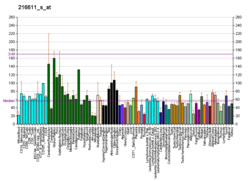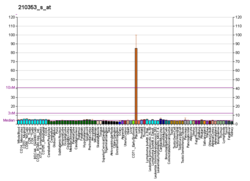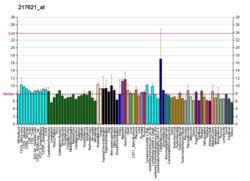| SLC6A2 | |||||||||||||||||||||||||||||||||||||||||||||||||||
|---|---|---|---|---|---|---|---|---|---|---|---|---|---|---|---|---|---|---|---|---|---|---|---|---|---|---|---|---|---|---|---|---|---|---|---|---|---|---|---|---|---|---|---|---|---|---|---|---|---|---|---|
| Identifiers | |||||||||||||||||||||||||||||||||||||||||||||||||||
| Aliases | SLC6A2, NAT1, NET, NET1, SLC6A5, solute carrier family 6 member 2, Norepinephrine transporter, norepinephrine transporter gene | ||||||||||||||||||||||||||||||||||||||||||||||||||
| External IDs | OMIM: 163970; MGI: 1270850; HomoloGene: 816; GeneCards: SLC6A2; OMA:SLC6A2 - orthologs | ||||||||||||||||||||||||||||||||||||||||||||||||||
| |||||||||||||||||||||||||||||||||||||||||||||||||||
| |||||||||||||||||||||||||||||||||||||||||||||||||||
| |||||||||||||||||||||||||||||||||||||||||||||||||||
| |||||||||||||||||||||||||||||||||||||||||||||||||||
| Wikidata | |||||||||||||||||||||||||||||||||||||||||||||||||||
| |||||||||||||||||||||||||||||||||||||||||||||||||||
The norepinephrine transporter (NET), also known as noradrenaline transporter (NAT), is a protein that in humans is encoded by the solute carrier family 6 member 2 (SLC6A2) gene.[5]
NET is a monoamine transporter and is responsible for the sodium-chloride (Na+/Cl−)-dependent reuptake of extracellular norepinephrine (NE), which is also known as noradrenaline. NET can also reuptake extracellular dopamine (DA). The reuptake of these two neurotransmitters is essential in regulating concentrations in the synaptic cleft. NETs, along with the other monoamine transporters, are the targets of many antidepressants and recreational drugs. In addition, an overabundance of NET is associated with ADHD.[6][7] There is evidence that single-nucleotide polymorphisms in the NET gene (SLC6A2) may be an underlying factor in some of these disorders.[7]
- ^ a b c GRCh38: Ensembl release 89: ENSG00000103546 – Ensembl, May 2017
- ^ a b c GRCm38: Ensembl release 89: ENSMUSG00000055368 – Ensembl, May 2017
- ^ "Human PubMed Reference:". National Center for Biotechnology Information, U.S. National Library of Medicine.
- ^ "Mouse PubMed Reference:". National Center for Biotechnology Information, U.S. National Library of Medicine.
- ^ Pacholczyk T, Blakely RD, Amara SG (March 1991). "Expression cloning of a cocaine- and antidepressant-sensitive human noradrenaline transporter". Nature. 350 (6316): 350–4. Bibcode:1991Natur.350..350P. doi:10.1038/350350a0. PMID 2008212. S2CID 4333895.
- ^ Cite error: The named reference
Schroeterwas invoked but never defined (see the help page). - ^ a b Tellioglu T, Robertson D (November 2001). "Genetic or acquired deficits in the norepinephrine transporter: current understanding of clinical implications". Expert Reviews in Molecular Medicine. 2001 (29): 1–10. doi:10.1017/S1462399401003878. PMID 14987367. S2CID 30965333.






